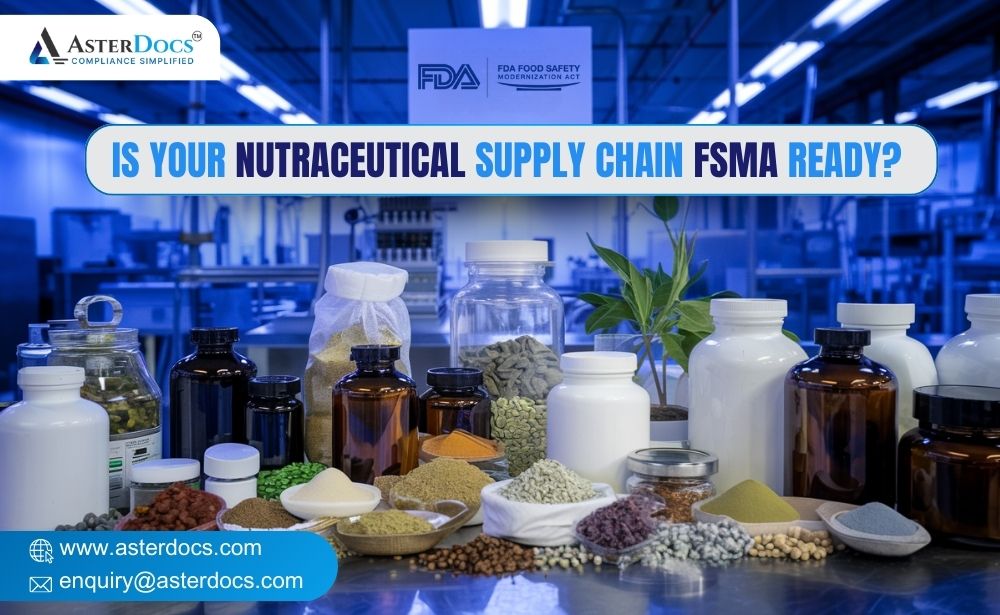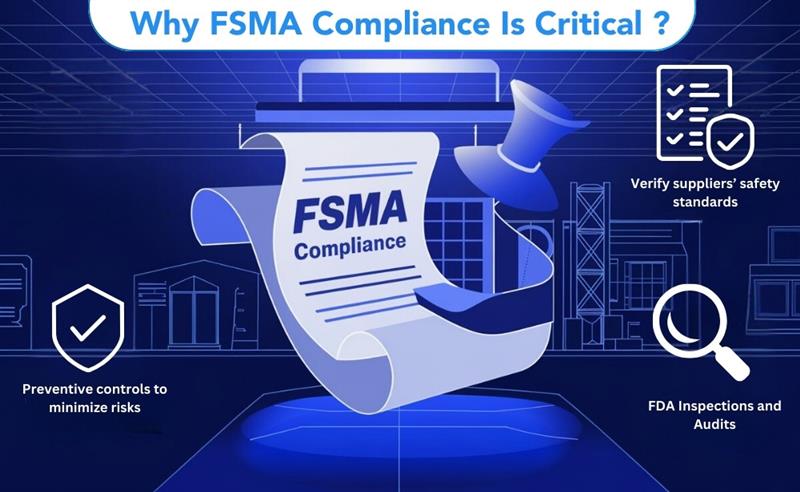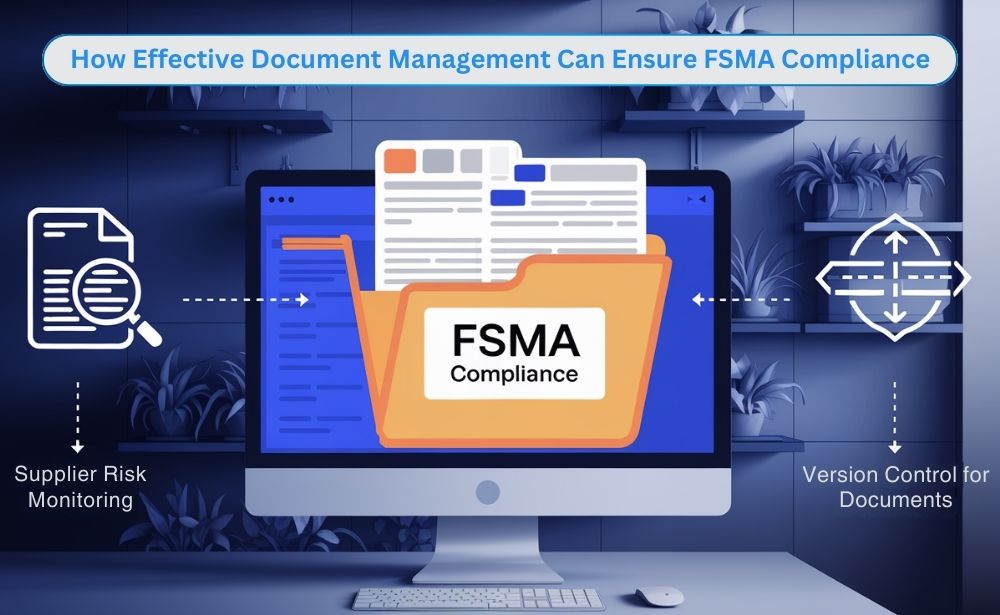In the nutraceutical industry, ensuring product safety and regulatory compliance is crucial. With the rise in consumer demand for dietary supplements, nutraceutical companies face an increasing need to meet food safety standards. The Food Safety Modernization Act (FSMA) was introduced by the U.S. FDA to ensure that food products, including nutraceuticals, meet strict safety protocols. For Indian businesses exporting to the U.S., adhering to FSMA compliance is not just a legal requirement—it’s essential for building consumer trust and protecting their brand.
In this blog, we’ll dive into the role of FSMA compliance in safeguarding nutraceutical businesses and explore how compliance management software and regulatory document management play a significant part in this process.
Why FSMA Compliance Matters for Nutraceutical Businesses
The nutraceutical industry is unique because it straddles the line between food products and dietary supplements. This makes it essential for businesses in this sector to follow both food safety and pharmaceutical regulations. The FSMA was introduced to shift the focus of regulatory authorities from reacting to contamination issues to preventing them. Here’s why FSMA compliance is critical for nutraceutical companies:
- Preventive Controls: FSMA requires nutraceutical companies to establish preventive controls to minimize risks of contamination during production. This includes implementing a food safety plan that addresses hazards such as allergens, microbiological contaminants, and chemical residues.
- Supplier Verification Programs: The FSMA mandates companies to verify their suppliers’ safety standards. This is especially relevant for businesses sourcing ingredients from various suppliers, as even a single contaminated batch can lead to severe consequences.
- FDA Inspections and Audits: FSMA compliance ensures your company is always prepared for FDA inspections. The FDA has the power to conduct audits, and any lapses in compliance can result in penalties, import bans, or recalls, which can be disastrous for a nutraceutical brand.
The Impact of Non-Compliance
Non-compliance with FSMA regulations can have serious repercussions for nutraceutical businesses. These include:
- Product Recalls: Failing to meet FSMA standards may result in product recalls, which can be extremely costly and damage a company’s reputation in the market.
- Import Restrictions: For Indian nutraceutical businesses exporting to the U.S., noncompliance can lead to import bans, effectively shutting down their access to a lucrative market.
- Regulatory Fines: The FDA can impose hefty fines on companies that fail to meet FSMA requirements, leading to financial loss and potentially crippling operations.
How Compliance Management Software Supports FSMA Compliance
Ensuring FSMA compliance involves managing vast amounts of documentation, risk assessments, and real-time monitoring. Compliance management software simplifies this process by providing the tools businesses need to maintain their regulatory requirements. Here’s how it helps:
- Centralized Document Storage: Nutraceutical businesses need to manage a variety of documents, including Certificates of Analysis (COAs), supplier agreements, and audit reports. Compliance management software allows companies to store all these documents in a single, accessible location, minimizing the risk of losing important data.
- Automated Alerts and Notifications: The FSMA requires businesses to submit and renew certain certifications within specific timeframes. Compliance management software sends automated alerts before document expiration, ensuring that nothing slips through the cracks.
- Real-Time Compliance Monitoring: By using regulatory document management tools, businesses can monitor their compliance status in real-time. This reduces the chances of non-compliance during inspections and audits, as everything is organized and updated within the system.
Using Regulatory Document Management to Ensure FSMA Compliance
Another critical aspect of FSMA compliance is managing the large volume of regulatory documents required by the FDA. Here’s how effective regulatory document management can support your business:
- Supplier Risk Monitoring: FSMA compliance places a heavy emphasis on ensuring that suppliers are also following safety protocols. Regulatory document management software tracks supplier certifications, safety audits, and verification reports, giving you full visibility into your supply chain.
- Version Control for Documents: Nutraceutical businesses frequently update product formulations, safety data, and compliance certificates. Having proper version control ensures that you are always working with the latest documents, reducing the risk of errors during FDA inspections.
Conclusion
FSMA compliance plays a vital role in protecting the reputation and operational viability of nutraceutical businesses. From preventive controls to supplier verification programs, adhering to FSMA regulations helps companies ensure product safety and avoid costly penalties. Investing in compliance management software and regulatory document management tools is essential for streamlining the process and staying on top of documentation requirements.
To ensure your nutraceutical business remains compliant with FSMA standards, explore how AsterDocs can simplify your compliance management. Visit our website for more information.















